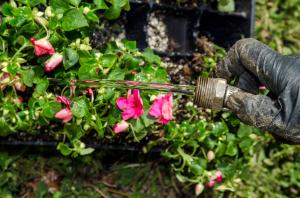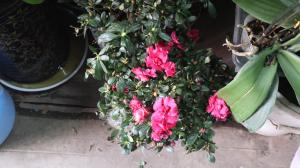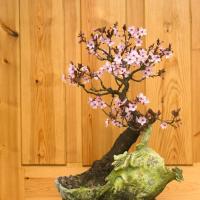Introduction
Potted plants are a common sight in many homes and gardens. They add a touch of greenery and improve the air quality indoors. However, one thing that gardeners often notice when they examine the soil in their potted plants is the presence of small, round holes. In this article, we will explore what causes these holes in potted plant soil.
The Role of Drainage Holes
Before delving into the causes of round holes in potted plant soil, it is essential to understand the role that drainage holes play in potted plants. These holes allow excess water to drain out of the soil, preventing waterlogging and root rot. Without drainage holes, the soil would become compacted and lead to a buildup of harmful bacteria.
The Creatures Behind the Holes
One of the primary causes of round holes in potted plant soil is the presence of earthworms. These creatures help break down organic matter in the soil, improving the soil structure and nutrient availability for the plants. As they move through the soil, they leave behind small, round castings, which can resemble holes.
Another culprit behind these holes in potted plant soil is fungus gnats. These tiny flying insects lay their eggs in moist soil, often leading to infestations. The larvae of these gnats feed on the organic matter in the soil, leaving behind small pits.
The Effects of Overwatering
Overwatering is another common cause of round holes in potted plant soil. When the soil is kept too moist, it can become compacted, leading to the formation of air pockets in the soil. These air pockets can create spaces that resemble holes, and they can also make it difficult for plants to grow roots, leading to stunted growth.
How to Prevent Round Holes in Potted Plant Soil
Preventing round holes in potted plant soil requires a combination of proper watering and soil health. First and foremost, it is essential to ensure that the soil is well-draining, allowing excess water to escape. This can be achieved by ensuring that there are enough drainage holes in the bottom of the pot and by using a high-quality potting mix.
Additionally, it is essential to avoid overwatering the plants. The frequency of watering will depend on the type of plant and the size of the pot, but in general, it is better to underwater than to overwater. It is also important to avoid letting the plant sit in standing water, as this can lead to waterlogging and root rot.
Finally, it is crucial to maintain healthy soil by incorporating organic matter and providing adequate nutrients. This will help ensure that there are no nutrient deficiencies or harmful bacteria that can create air pockets in the soil, leading to the formation of holes.
Conclusion
In conclusion, round holes in potted plant soil can be caused by a variety of factors, including earthworms, fungus gnats, and overwatering. To prevent the formation of these holes, it is essential to have good drainage, avoid overwatering, and maintain healthy soil. With these measures in place, gardeners can enjoy healthy, thriving potted plants for years to come.

 how many times do yo...
how many times do yo... how many planted tre...
how many planted tre... how many pine trees ...
how many pine trees ... how many pecan trees...
how many pecan trees... how many plants comp...
how many plants comp... how many plants can ...
how many plants can ... how many plants and ...
how many plants and ... how many pepper plan...
how many pepper plan...































